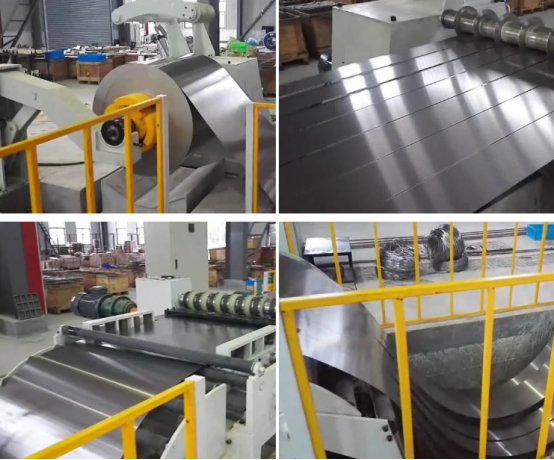
The Innovative Deck Floor Roll Forming Machine Revolutionizing Construction and Manufacturing
In the modern construction and manufacturing landscape, efficiency and precision are paramount. The deck floor roll forming machine represents a significant advancement in metal fabrication technology, particularly for producing high-quality flooring systems used in commercial and industrial buildings. This article explores the functionalities, benefits, and applications of deck floor roll forming machines, shedding light on their pivotal role in contemporary construction processes.
Understanding Deck Floor Roll Forming Machines
A deck floor roll forming machine is designed to create metal decking sheets from flat metal coils. The machine employs a series of rollers that gradually shape the raw material into the desired profile, typically consisting of ribs or grooves that enhance structural support. The operational process begins with loading a coil of steel into the machine, which is then fed through a series of rollers. As the metal passes through each section of rollers, it is progressively formed into a defined shape, resulting in a continuous length of metal deck.
These machines are highly versatile and can produce various profiles, depending on the specifications required for specific projects. The most common materials used include galvanized steel and aluminum, known for their strength and durability, making them ideal for flooring applications.
Benefits of Using Deck Floor Roll Forming Machines
1. Efficiency One of the primary advantages of employing a roll forming machine is the speed at which it can produce decking sheets. Unlike traditional methods, which may involve multiple steps and processes, roll forming allows for continuous production, significantly reducing lead times.
2. Precision Roll forming machines provide uniformity and accuracy in the production of metal decks. The automated process minimizes human error, ensuring that each sheet meets the specified dimensions and quality standards. This precision is crucial in construction, where the structural integrity of flooring systems is vital.
3. Cost-effectiveness While the initial investment in a roll forming machine may be substantial, the long-term savings realized through increased production efficiency and reduced labor costs make it a worthwhile investment. Additionally, the reduced material waste further contributes to cost savings.

4. Customization Deck floor roll forming machines can be customized to produce a wide range of profiles and thicknesses. This flexibility allows manufacturers to cater to specific project requirements and design preferences, providing a competitive edge in the marketplace.
5. Durability and Strength Metal decking produced by roll forming machines exhibits superior strength and resistance to various environmental factors. Galvanized finishes offer protection against corrosion, making these decks suitable for both indoor and outdoor applications.
Applications of Deck Floor Roll Forming Machines
Decking systems produced by roll forming machines are widely used in various sectors, including commercial buildings, warehouses, parking structures, and even residential projects. Among the most common applications are
- Composite Floor Systems Decks are often used as part of composite floor systems that integrate concrete and steel to maximize load-bearing capacity. This application is prevalent in high-rise buildings and industrial facilities where strength is crucial.
- Roofing and Flooring Applications Decking sheets can also function as roofing materials, offering insulation and structural support. Their light weight and high strength make them favorable for use in both flooring and rooftop applications.
- Modular Construction As the construction industry moves towards more modular approaches, roll forming machines allow for the quick and efficient production of decking components that can be prefabricated off-site and assembled on-site, reducing construction time and costs.
Conclusion
The deck floor roll forming machine has become an indispensable tool in the construction and manufacturing sectors. With its ability to produce high-quality, precisely crafted decking sheets efficiently and cost-effectively, it meets the growing demands of modern construction practices. As technology continues to evolve, these machines will likely incorporate even more advanced features, further enhancing their capabilities and benefits. The future of construction will undoubtedly witness the broader adoption of such innovative equipment, solidifying its role in building the structures of tomorrow.